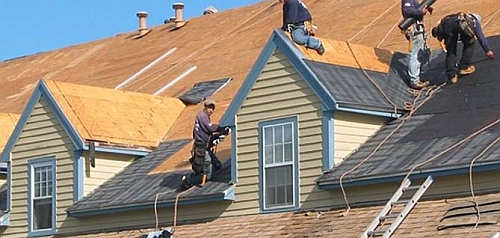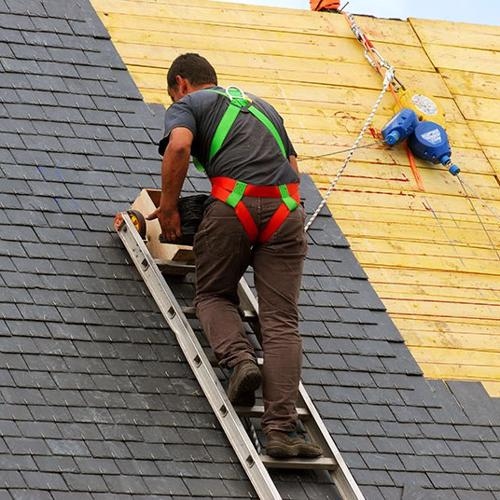So your roof needs replacing, and you’ve started looking at options. As you price out materials and contractors, you’ll inevitably come across the topic of roofing warranties and guarantees. At first glance, a long warranty seems like an obvious choice – who doesn’t want maximum coverage for their investment? But like any contract, the fine print matters.
Before you sign on the dotted line for a new roof and warranty, here are some key things our Atlanta roof replacement professionals think you need to know.
What’s Included in a Standard Roofing Warranty?
A standard residential roofing warranty typically covers defects in materials and workmanship for 20 to 25 years after installation. This means if your roof starts leaking or shows signs of damage within that time frame that isn’t due to environmental factors like severe storms, the roofing company will repair or replace it at no cost to you.
The basics covered under a typical roofing warranty include:
- Wind damage up to 130 mph. High winds can wreak havoc on a roof, so coverage for wind-related issues like loose or missing shingles is important.
- Algae growth. Black streaks on your roof from algae overgrowth are unsightly and can damage shingles. A good warranty will cover the cost of treating and removing algae.
- Tear-offs. If your old roof needs to be torn off before the new one is installed, the warranty should cover the cost of removal and any related repairs.
- Material defects. Things like cracked or broken shingles, leaks or tears in the underlayment, or issues with vents/flashing due to manufacturing errors should be covered.
The length of coverage can vary but usually lasts 20 to 50 years for asphalt or composite shingles, the most common residential roofing materials. Some companies offer affordable extended warranties that provide coverage for 30 years or more and include additional benefits like hail damage repair and fallen tree removal.
What Does Limited Lifetime Warranty Actually Mean?
A limited lifetime warranty for roofing shingles means the shingles are warranted to last for the expected useful life of the product, which can vary between 15 to 50 years, depending on the shingle type and manufacturer. In other words, it’s not literally for your lifetime.
The specific duration will depend on the type of shingles you choose and your climate. Asphalt shingles, for example, typically last 20-30 years in moderate climates, while higher-quality architectural shingles can last 30-50 years.
Shingles also tend to last longer in cooler areas. The warranty coverage will decrease over time in a pro-rated fashion. After the first 10-15 years, the warranty may only cover a percentage of replacement or repair costs.
Workmanship Warranties Cover the Installation
A workmanship warranty is one of the most important things to consider when getting a new roof. It guarantees that the installation crew who put on your roof will fix any mistakes or issues for free within the coverage period.
This includes fixing leaks, poor drainage, or any damage from the installation. Most workmanship warranties last 2 to 5 years, though some companies offer longer coverage from 10 to 15 years or more.
Look for a reputable contractor who proudly stands behind their work with a solid workmanship warranty. They know they do quality work, and if an issue arises, your repairs will be handled. Be cautious of contractors who don’t include a workmanship warranty.
Manufacturer Warranties Cover the Materials
A manufacturer or product warranty covers defects in the physical materials used on your roof. For example, if your asphalt or fiberglass shingles start to curl, crack, or deteriorate within the first few years after installation, the manufacturer will typically replace them at no cost.
To take advantage of a manufacturer warranty, you’ll need to contact the company that made the roofing materials, not your contractor. You should have received paperwork detailing the specific coverage and terms when your roof was installed.
Got More Warranty Questions? Reach Out to Atlanta Roofing Specialists
When it comes to roofing warranties, it’s important to understand the fine print. As homeowners ourselves, we know how confusing warranties can be. That’s why Atlanta Roofing is here to help explain what you need to know.
If you have additional questions about navigating roofing warranties or need help with a roofing project, don’t hesitate to contact us right away at 404-737-7179!



